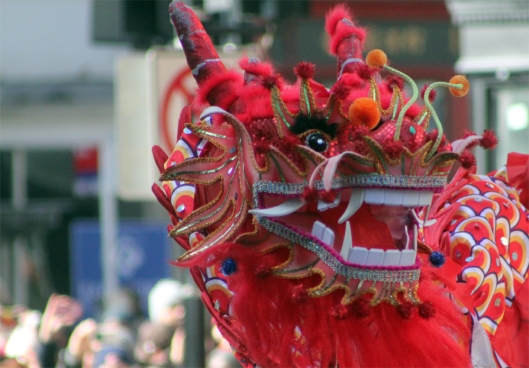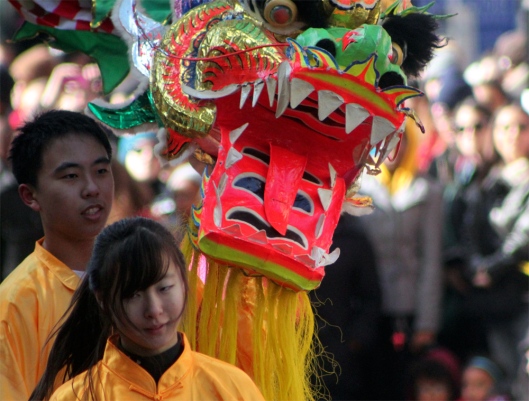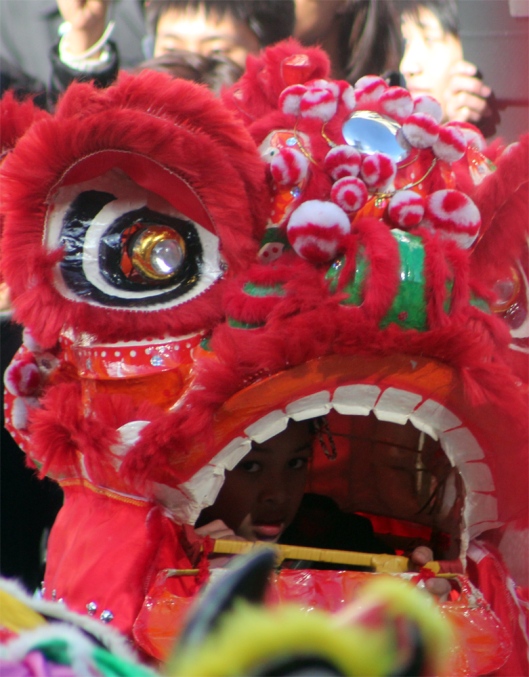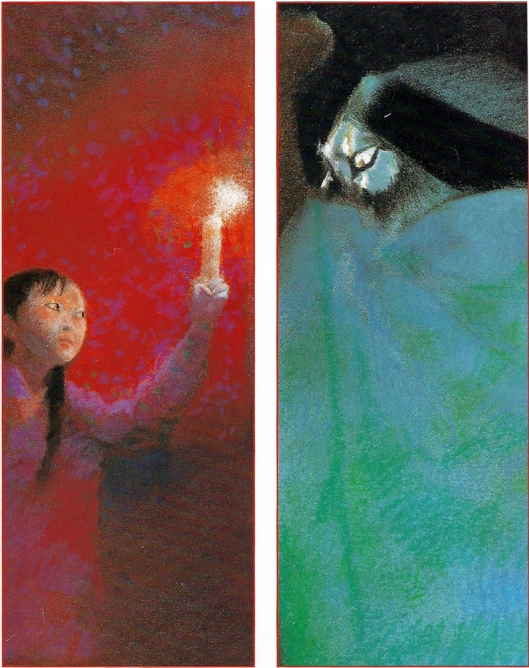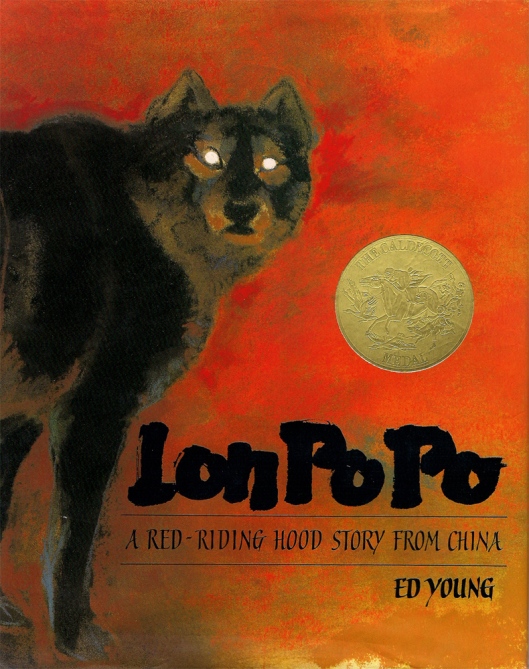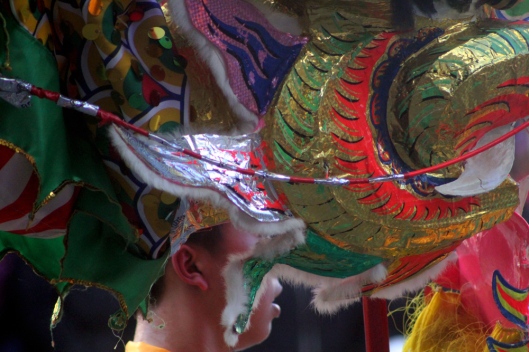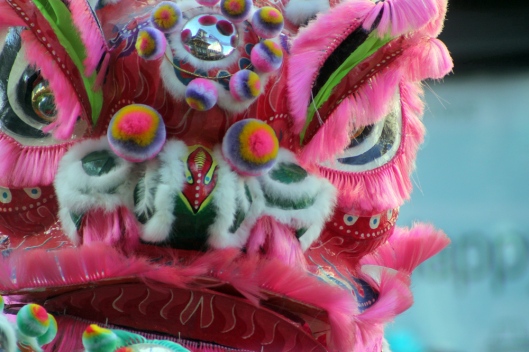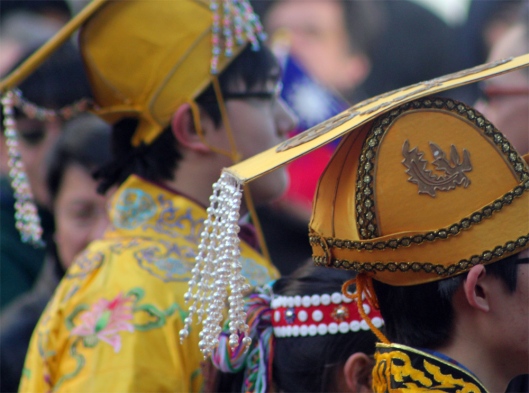Food is present in picture books more than we think. Take for example the classic Little Red-Riding Hood. Couldn’t we say that story is about food? After all, everything starts with the basket of food that Little Red-Riding Hood has to deliver to her grandma. And it’s food that motivates the wolf to attack the little girl and that drives the story to the end. So, when I heard about a Chinese version, Lon Po Po: A Red-Riding Hood Story from China, I thought it would be a great book to share for the Chinese New Year.
Lon Po Po is based on an old Chinese folktale, and the story is a little different than the one we’re used to. Here, a mother leaves her three children at home while she goes to visit grandma, and a wolf tries to eat them during her absence. The children trick the wolf with a false promise of a treat, and they succeed in getting rid of him before the mother returns with baskets full of food from grandma.
In China, another story is popular during the New Year celebrations. It’s a legend about a mythical beast who would visit a village on the first day of each year, devouring crops, villagers, and their children. It was believed that if villagers made baskets of food and left them in front of their homes for the beast, he would leave them alone. One day, however, the villagers noticed that the beast was scared by a child wearing red. And so began the tradition of hanging red lanterns and red spring scrolls on doors and windows during the New Year festivities.
Lon Po Po: A Red-Riding Hood Story from China follows an aesthetic from China’s traditional art, and the style is dramatic and convincing. The book won the 1990 Caldecott Medal, so no need to insist on how beautiful the illustrations are.
What struck me about the book, however, is the dedication by author and illustrator Ed Young: “To all the wolves of the world for lending their good name as a tangible symbol for our darkness.”
Why is the wolf seen as a negative force, rather than just an animal looking for something to eat? Does he create a sense of fear, harm, and danger in an unconscious, instinctive, and innocent way? Ed Young’s note gave me another reason to think that his, is the perfect book for me to share for today’s Chinese New Year. Here’s why:
New Year is a big deal in China. Everything shuts down for two weeks. Family members gather, sometimes with great sacrifice, in order to be with their loved ones. It’s a time to celebrate love, solidarity, generosity, and hospitality. Food is a key vehicle to manifest all of these virtues, and food often symbolizes positive attitudes and hopes, such as long noodles that represent a long life. It is also a special time when traditional delicacies are served to mark the occasion. Unfortunately, however, shark fin soup is one of the Chinese New Year dishes.
To make shark fin soup, a shark is caught, the fin is cut off, and the still-living animal is cruelly thrown back to the ocean to die. Each year, fins from an estimated 26 to 73 million sharks move through the Hong Kong shark fin market alone. Shark fin soup it seems has no succulent taste and no nutritional value. It is simply traditional, which is important but too costly to the environment and to the balance of the ecosystem that we’re all a part of. Sharks are vital to the ocean. They cull the sick and weak which stops the spread of disease among fish populations and keep our oceans (70% of the earth’s surface) healthy. Killing sharks also breaks the food chain and eventually endangers our own species.
Now that I’ve gotten that off my chest, I am ready to head to Chinatown in D.C. to enjoy the Chinese New Year Parade and wishing my best to everyone celebrating the year 4710!

A couple good picture books related to Chinese food: Yum Yum Dim Sum by Amy Wilson Sanger (Also check her other ethnic food related picture books, they are awsome! Really!). Ling & Ting: Not Exactly the Same! By Grace Lin
A great article from Saveur Magazine about Chinese food during Chinese New Year celebrations in Hong Kong.
An excellent, perceptive, and concise article about the shark fin controversy: Shark’s Fin: Understanding the Political Soup by Jonathan Kauffman.
